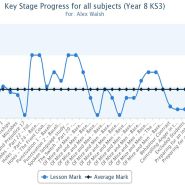Ofsted released a report this week analysing the evidence of progress made to raise the achievement for pupils eligible for free school meals.
151 inspection reports analysed between January and December 2013 have been used along a sample of 83 primary schools and 68 secondary schools to provide examples of good practice and weaknesses present in the spending of the Pupil Premium.
The research identifies that the Pupil Premium funding in most schools is predominantly spent on:
- Additional staff including teachers and teaching assistants
- Interventions such as booster classes and reading support
- Employment of learning mentors ‘who have specific roles in supporting pupils’ academic and personal development’
- Specialist support for developing language and communication skills in primary schools
- Enabling pupils to participate fully in after-school clubs and activities
- Provide financial support for educational visits
The strongest examples of effective spending of the Pupil Premium include:
- Strong governing bodies that take ‘strategic responsibility for ensuring that the funding improves teaching and support for eligible pupils in the school’
- Activities are monitored, evaluated and amended to ensure they meet the needs of their pupils
- Identifying pupils’ specific needs ‘accurately and promptly so that low attainment can be tackled at the very earliest stage
- Support from skilled and well-trained additional adults along with the best teachers
- Strong commitment to removing barriers that hinder pupils’ development and achievement
- Clear vision to improve and set high expectations
- Ensure support is offered for pupils to catch up with the basics of literacy and numeracy
- Support to improve issues surrounding attendance, behaviour, confidence and resilience
- Providing overall support that is ‘comprehensive, well-integrated and responsive to their changing needs’
Weaknesses that resulted in wide attainment gaps or narrowing at a very slow rate included:
- Weak leadership and governance
- Money spent on interventions that were having little impact on achievement
- Not using information about pupil progress effectively or sharing that information with teachers
- No evidence of any accountability for the use of Pupil Premium or its impact










